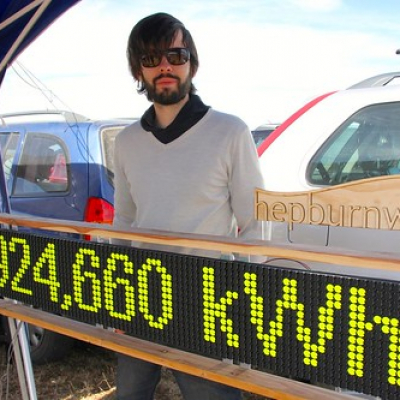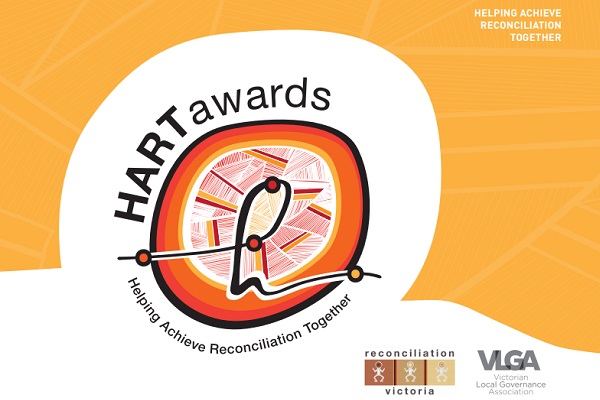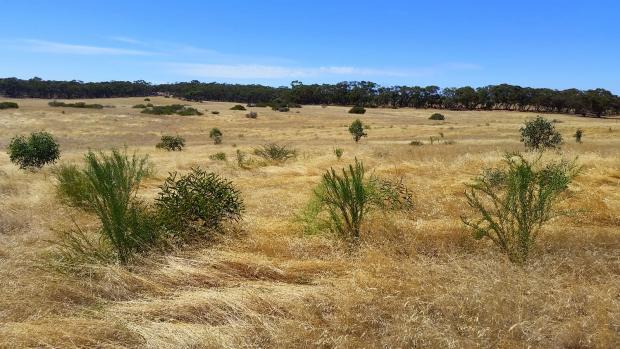When we dare to face the cruel social and ecological realities we have been accustomed to,
courage is born and powers within us are liberated to reimagine and even, perhaps one day, rebuild a world.
(Joanna Macy, Entering the Bardo)
2. Repair Cafes, ‘how-to’ workshops and right to repair
Next Daylesford Repair Cafe
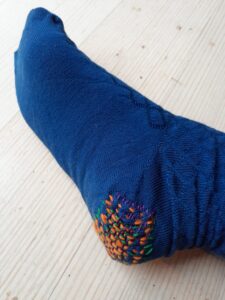
Say goodbye to throw away fast fashion and wear your beautifully mended clothing with pride. Local crafters Jackie and Glen will be available to give one on one lessons in darning. Invisible darning and bold decorative darning will be covered.
Bring your damaged socks, knitwear, coats or denim jeans to be repaired. Also sewing needles (large eye darning needles especially), sewing cottons, embroidery threads and knitting yarns, small sharp scissors and a darning tool such as a wooden darning mushroom, (or an orange or apple can be used).
See you then for a cosy afternoon of stitching.
Next Castlemaine Repair Cafe
When: : Sunday July 25th, 10am to 1pm, .
Where: Castlemaine Community House, 30 Templeton St
Next Bendigo Repair Cafe
When and Where: Saturday July 17th, 10am at the Old Church on the hill
What: Creative ways to mend woollen clothes
Article from The Guardian on the Right to Repair (thanks to Chris Hooper)
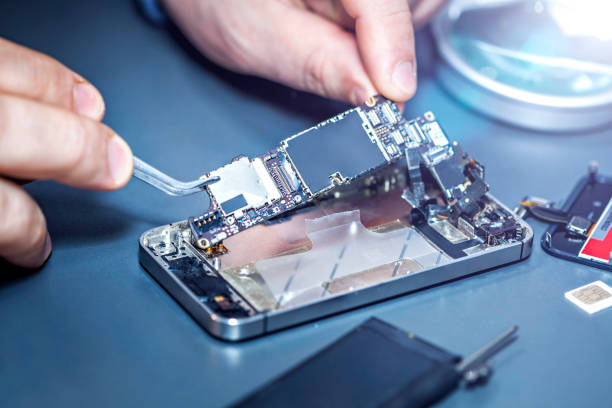
It should be easier for Australians to get their smartphones, tablets and other devices repaired or replaced, the Productivity Commission has found.The commission reviewed the so-called “right to repair” in Australia and received more than 300 submissions and comments. Many consumers complained that companies were making it harder and more expensive to get devices repaired by anyone other than the manufacturer. The most common issues with phones, for example, are smashed screens or the need to replace the battery, but increasingly, companies like Apple and Samsung are making it harder for consumers to repair it themselves – or get it repaired by anyone but Apple or Samsung.
Kevin Purdy, a journalist at the repair site iFixit, told Guardian Australia earlier this year a major issue preventing people from fixing their own devices was the increasing cost of parts, which often meant a repair was as expensive as a replacement. “The cost of the repair itself needs to be some reasonable fraction of the total replacement cost of the device or people just won’t bother,” he said at the time. “If it costs much more than about a third of the price of the new device, people tend to gravitate towards just buying a new one. The director of repair shop Phone Spot, Nicholas Muradian, told the Productivity Commission that Samsung parts were getting too expensive. “They make their LCD screens that are used to repair mobile devices available but at a price that is too high. That makes it hard for a consumer to justify the repair,” he said. “I am finding that for the same price I am purchasing a part for, Samsung offers the repair to the customer at the same cost. This is an indirect method of putting a stop to third-party repair.”
Manufacturers were also making it harder through software locks to prevent unauthorised repairs. Specific screws on devices that can only be unlocked by tools owned by the manufacturer are also increasingly common.
The commission’s draft report, released on Friday, found the three main sectors where it was becoming harder to get repairs were mobile phones and tablets, motor vehicles, and agricultural machinery. The report contained seven recommendations to improve the right to repair and reduce the amount of electronic waste created in Australia. The commission’s draft report recommends the Australian Competition and Consumer Commission provide a minimum expected durability for categories of household products. It also wants state and territory governments to introduce alternative dispute resolution methods for people with repair or replacement issues. The commission is also looking at whether consumer groups should be able to collect complaints about products and then lodge a “super complaint” to the ACCC. The commission’s draft report also recommends making it against the law for companies to put warranty seals – that means stickers that break when the device is opened – on their products, after discovering seals in seven out of the 30 warranties reviewed including on the PlayStation 4, washing machines, mobile phones and high-end watches.Su ch a law already exists on most products in the United States.
The commission also suggested copyright law could be amended to allow independent repairers access to information and tools. Laptop manufacturer Toshiba in 2012 used Australian copyright law to send cease and desist notices to a hobbyist repairer website hosting laptop service manuals for Toshiba products.
Despite complaints about issues with repairability, the commission found mixed evidence that manufacturers were deliberately reducing the lifecycle of their devices, to force consumers to purchase the latest models.“A lot of manufacturers will design their products to last as long as the consumer would want to keep a product,” commissioner Paul Lindwall said. “A phone is a very intensely-used product … so the battery does get a lot more use in a phone so I’m not entirely surprised they only last two years. “Replacing the battery in the phone is not easy at all, obviously, that’s a design issue, but … the evidence is often that people are swapping [the product] out before the end of life for a number of reasons.”
The national television and computer recycling scheme should also be expanded to not just be about recycling e-waste but also allowing for products to be repaired and reused, the commission said, and the annual recycling targets should include products that have been repaired or refurbished. The commission has also recommended Australia better track where its e-waste ends up through the use of GPS transmitters on e-waste collected for recycling under the scheme.
The commission is set to hand its final report to the government in October and will hold roundtable discussions in the next few months on the draft recommendations.
3. Shaping our history together- a narrative to stop racism
Shaping our history together, a narrative to stop racism is a series of workshops, including a day out on Country, to share our past history since colonisation, talk about ways to reduce racism in our communities and finding ways forward to a more inclusive and resilient future.
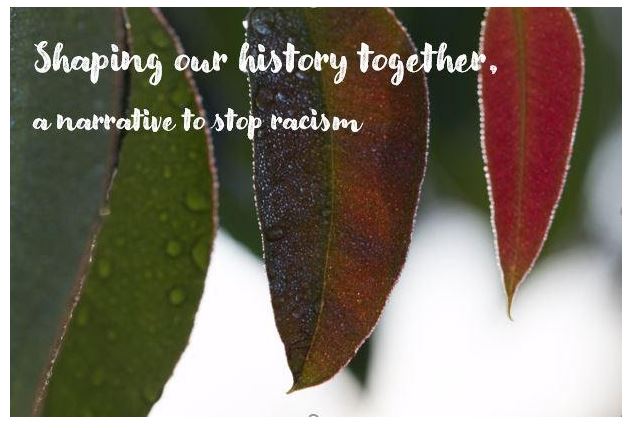
When: Sessions will be held weekly during term 3, starting Thursday 15th July 6.30pm and finishing at 8 pm
Where: Maldon Neighboorhood Centre.
Registration and cost: Register your interest at the Maldon Neighboorhood Centre on (03) 5475 2093. Cost: $200 full price and $180 concession.
The sessions will be run by Aunty Marilyne Nicholls and other Dja Dja Wurrung representatives, along with Emmanuelle Dubuc who is the founder of Mirawara Outdoor Experiences Inc. Through the weekly sessions, the participants will discover Indigenous culture, especially Dja Dja Wurrung culture and talk about our common history since colonisation. The end of term will be celebrated with a field trip on the cultural landscape of the Dja Dja Wurrung people: Mt Dharrengower (Mt Tarrengower).
This project comes as a response to the Statement from the Heart, where Traditional Owners across the country, are seeking a Makarrata Commission to supervise the agreement making process between government and First Nations and truth-telling about their history (Statement from the Heart, 2017). There cannot be reconciliation without acknowledging the continuing impact of colonisation on First Nation Peoples. Participants will have a reading packet available and specific readings will be selected weekly to engage in deep discussions during class time.
This initiative has been sponsored by Mt Alexander Shire and Maldon District Community Bank.
4. Resourceful Hepburn- Community Survey
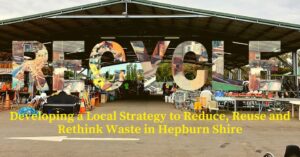
Hidden away behind your cupboards lie the beautiful works of art you have long treasured but no longer hold a place on your wall. Tucked in the bottom of a drawer, the prints you are yet to find a home for. Or at the back of the cupboard, or under the bed, a beloved art work, that is too special for the op shop. Art that needs a new home – a place on someone else’s wall.
Hidden Away is the theme of this year’s annual art exhibition and auction. Enjoy delicious canapes and drinks while you peruse the wonderful art works up for auction. Browse through the art online in the coming weeks and come with paddle in hand to bid for your favourite pieces, or just revel in the excitement of a live auction. A night filled with people coming together to celebrate each other and support the continuation of rural community arts. Book now!
8. Hepburn Wind, Community Energy & Australian Local Power Agency Bill
10. Biodiversity and Community Grants- Hepburn & Mt Alexander shires

Seven groups will share in $24,000 of funding as part of Hepburn shire’s annual biodiversity grants. Funds will go towards restoration of wetland areas to improve habitat for the Bright-eyed Brown Butterfly (pictured), revegetation along Creswick Creek, a pilot project to introduce biodiversity and cultural awareness training, a fox control project in North Drummond, training in weed control and chemical use, woody weed control in Wattle Flat and renewal of the biodiversity of the Quarry Street Reserve in Trentham.
Hepburn Shire’s community grants round 1 for 2021/22 opens on July 1st and closes on July 29th. Community groups and organisations have the opportunity to apply for funding on a quarterly basis. This includes local not-for-profit groups and organisations within the Hepburn Shire, who are incorporated with an ABN, or have an auspicing agent.To be eligible community projects must meet the following criteria: (1) Be a new or one-off event or program, or a new initiative for an existing event (excluding Category E. Charitable Purposes); (2) Be conducted within the Hepburn Shire to the benefit of its residents. For more information, including grant guidelines, visit the council website at www.hepburn.vic.gov.au/community-grants-program.To discuss your application, or for more information, contact Michelle Whyte, Coordinator Community Partnerships, on 5321 6496 or mwhyte@hepburn.vic.gov.au.
Mt Alexander Shire’s 2021 Community Grants – Round 2 will open on Monday 19 July 2021. Anyone who has an idea for a community based project, program or initiative is encouraged to apply. Our Community Grants provide support to new, innovative and emerging local community development projects and initiatives that align with Council’s strategic objectives. The Program is made up of two funding streams: Small Grants up to $3,000 and Partnership Grants up to $10,000. See the guidelines below for further information.If you would like to know more about the grants program, want to know if you are eligible or wish to discuss project ideas or the application process, contact a member of the Community Partnerships Team on 5471 1700 or email grants@mountalexander.vic.gov.au.
Dates for the 2021 Community Grants – Round 2:
OPENS – Monday 19 July 12am; CLOSES – Monday 9 August 4pm
11. Friends of Cornish Hill Reconciliation Week Event
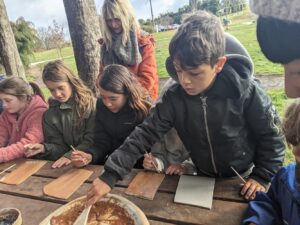
Silence was broken on Thursday 27 May when school staff and students from Yandoit, Bullarto and the Dharma primary schools gathered at the Daylesford Community Park for the Friends of Cornish Hill’s final one day workshop. The workshop was named Bu-Ka Lo-Wurru, meaning breaking the silence. Being the first day of Reconciliation week, this gave everyone an opportunity to honour the Dja Dja Wurrung people. Believing that reconciliation is a journey for all Australians, the Friends of Cornish Hill wanted to recognise this day, to make a difference in moving forward and to break the silence which surrounds the history of loss for all First Nations people.
A Welcome to Country and Smoking ceremony was conducted by highly respected Dja Dja Elder Aunty Marilyne Nicholls after which the students worked through three rotations each with a different activity. The activities included creating simple string and stick mobiles, discussion about the plants and animals that call Cornish Hill home as well as making models of some of these animals made from straw and bound with wool. For the final activity, each student creating their own symbol of recognition being a clay handprint made from a slurry of clay gathered from Cornish Hill.
From Principal of the Dharma School Jen Willis: “What an absolute delight it has been for the children of the Dharma School to participate in such engaging and rich learning experiences with the Friends of Cornish Hill. The environmental, cultural and peer learning programs that they have experienced have been such a valuable addition to their experiential learning. We are so grateful for such a meaningful community offering.”
Photo: Friends of Cornish Hill
12. Natural Dyeing with Ilka White
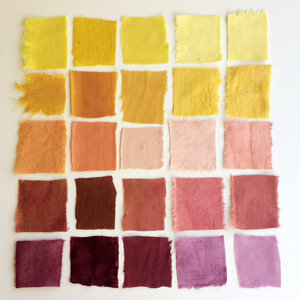
What: Discover some of nature’s hidden sources of colour! For thousands of years plants have been used to dye fibre and fabric and a beautiful natural palette is still available today without the need for harmful chemicals. Local weeds or kitchen off-cuts can offer you harmonious hues in a range of values and intensity. This hands-on workshop introduces a selection of local colour possibilities, as well as discussing fibre types, mordanting options and dye safety. A resist technique will also be used to produce patterned cloth.
Cost: $125
13. Agriculture Energy Investment Plan

The Victorian Government’s Agriculture Energy Investment Plan (AEIP) has been extended to help more Victorian farmers improve their energy efficiency and overall productivity. Applications for free on-farm energy assessments are now open until 15 July 2021. They are eligible for farms which spend more than $8000 per year on energy costs. The On-Farm Energy Assessments analyse on-farm energy use (electricity, gas and diesel) and identify opportunities to: make energy savings; improve output volumes per energy unit; and to convert to renewable energy sources.
For more information on the program, eligibility and application process visit the link below or attached guidelines.
https://agriculture.vic.gov.au/support-andresources/funds-grants-programs/agriculture-energyinvestment-plan/on-farm-energy-assessments.
14. Wombat Forestcare- new National Parks and Reserves in our region
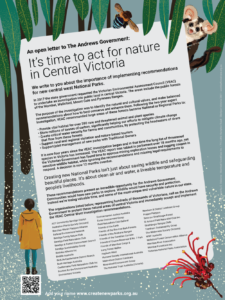
A collaboration of over 40 groups, coordinated by local community conservation group Wombat Forestcare, called on the Andrews Government to create and implement new parks for Victoria, through a series of full page adds in six papers across key regional centres of Bendigo, Ballarat, Castlemaine, Moorabool, Daylesford, Macedon.
As a result of this community campaign and the work of many groups Victoria’s central west will have 65,106 hectares of new National Parks further protecting the area’s unique environment. The new National Parks and reserves will protect habitat for rare and threatened species. New National Parks will be created by linking existing state forests, parks and reserves. The largest will bring together Lerderderg State Park and much of the existing Wombat State Forest to create a new national park covering more than 44,000 hectares between Daylesford and Bacchus Marsh. A 15,000-hectare Pyrenees National Park will be created northwest of Avoca, and a 5282-hectare Mount Buangor National Park will double the size of the existing State Park north of Buangor. New conservation parks covering 5246 hectares in areas with a high biodiversity value have also been created to protect precious flora and fauna. A further 7560 hectares are being added to expand existing nature and bushland reserves. Regional parks will be expanded by 27,735 hectares.
If you’re interested to learn more about the creatures that call Wombat State forest home and those communities caring for it, check out the publications, videos and photographs supplied by dedicated volunteers at Wombat Forestcare at https://www.wombatforestcare.org.au/
You can also subscribe to Wombat Forestcare’s newsletter- here’s their March 2021 newsletter: http://www.wombatforestcare.org.au/newsletters/WombatForestcareNewsletter55_March_21.pdf
15. Regional Water Storages
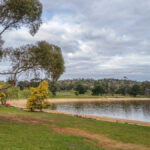
Percentage water storage figures in our region, as of June 24th, 2021: (with thanks to North Central Catchment Management Authority)
Cairn Curran Res- 38.05; Tullaroop Res 39.10;
Laanecoorie Res 38.13; Newlyn Res 77.67;
Hepburns Lagoon 71.59; Lake Eppalock 35.43
Upper Coliban Res 88.40; Lauriston Res 92.80; Malmsbury Res 23.6
16. Hepburn Wholefoods
July is Engagement Month at Hepburn Wholefoods, and its also our one-year anniversary in our new space! After a year of establishing, and settling in, it’s time to engage more with our members generally, and our volunteers, and seek your ideas into our future direction. So for the month of July there will be some social get-togethers, as well as member consultation into our future direction.

Wholefoods Happy Hour
Thursday 1st of July ~ 5 – 6pm
Thursday 15th of July ~ 5 – 6pm
Mulled wine and nibbles ~ come and connect, say hello, have a lovely time!
Soup Saturday
Saturday 3rd of July ~ 1 3pm
Soup made from our gorgeous produce ~ come and connect and enjoy some delicious soup.
Soup Saturday & Working Bee
Saturday 17th of July ~ 1 – 3pm
Soup made from our gorgeous produce ~ come and connect, enjoy some delicious soup and have a potter in the garden / help out with jobs if it takes your fancy!
PLEASE RSVP for catering purposes to Beverly on hello@hepburnwholefoods.org.au
Member Consultation: For the whole of July, in the shop space there will be a ‘polling booth” (you can’t miss it) with the opportunity for you to give us some feedback. If you won’t be in the shop, don’t worry – we will be sending out a survey too, so keep an eye out for this, as we need as many of you as possible to have your say.
Wicking Bed Workshop – Saturday 10th of July ~ 2-4pm (Free)
Wicking beds use significantly less water than standard garden beds through a unique irrigation style – from underneath! This “on-tap” water supply supports your veggies in striving for their best, by having access to moisture on a consistent basis. This session will cover the science and logistics of building a wicking bed, including:
- How wicking beds work and what they offer, including water and labour savings & easy vegetable gardening
- When wicking beds are great option, and when they might not be
- Q and A session for all your wicking bed plant growing questions
Located at Daylesford Lawn Tennis Club, 66a West Street, Daylesford. Enter via Perrins Street.
For all enquiries please email members@hepburnwholefoods.org.au
17. Bird of the month: Galah
Bird of the month is a partnership between Connecting Country and BirdLife Castlemaine District. Each month we’re taking a close look at one special local bird species.
Galah (Eolophus roseicapilla)
Recently I had the absolute pleasure of visiting Nature Foundation’s property, Witchelina Nature Reserve, near Marree in South Australia and I highly recommend making the effort to visit. Whilst there I saw desert birds that Victorians get very excited about because their ranges don’t extend this far south. These are birds we rarely see and birds we commonly see, like the Galah. This bird is either overlooked or labelled a destroyer of crops, but lights up in clear desert light showing off the most stunning pink face and body.
Cockatoos are known to be very intelligent the world over, and this includes the Galah. They have readily adapted to altered habitats such as farmland, particularly cropping, with accompanying water sources. I saw them at Witchelina utilising open woodland and mallee, with the exception of the driest areas. They can often be seen in mixed flocks with both Corella species and Sulphur Crested Cockatoos, feeding on any area of open ground.
However, Galahs have also learned to utilise tall forests and coastal areas, a seemingly far cry from their original dry interior ranges. Interestingly, while the Galah was known rarely in Tasmania, there is now an expanded breeding population. In another example of the ability of this species to move vast distances, in 1966 in response to drought, a flock of Galahs moved from inland areas to Maroochydore in Queensland, where they now reside and breed. Its wide distribution and abundance positions the Galah as perhaps the most successful member of the cockatoo family.
Female Galah with her pink eye (photo by Jane Rusden)
Due to their adaptability, Galahs have landed in the crosshairs of parties with grievances towards them. This is an extra sad dilemma as they form permanent pair bonds for the life of a bird and have complex social structures. They will often use the same nest in a tree hollow year after year, rearing young who remain dependent for several months in the nest, then another month in a creche, still being feed by their parents. On a lighter note, studies have shown their love of what humans call mischief. Galahs can undo bindings on grain bags for a free feed, will play and swing on wires, roll down inclines and play with objects using their feet, while lying on their backs. To bathe they love to hang upside down with their wings out, in the rain. No wonder the slang for a person being a bit of a goof is ‘you’re a Galah!’
To listen to the call of the Galah, visit Graeme Chapman’s website – click here
Written and illustrated by Jane Rusden and Damian Kelly for this article
Initially posted by Connecting Country on 23 June, 2021 – https://connectingcountry.org.au/
18. Castlemaine library- Heal Country, Story Time, & Cycling Together book launch
Heal Country
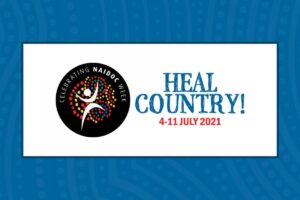
NAIDOC Week is an opportunity for all Australians to come together to celebrate the rich history, diverse cultures and achievements of Aboriginal and Torres Strait Islander peoples as the oldest continuing cultures on the planet. This year’s theme – Heal Country! – calls for all of us to continue to seek greater protections for our lands, our waters, our sacred sites and our cultural heritage from exploitation, desecration and destruction. Read more about this year’s theme.
“Aboriginal people just didn’t wander around the country with nothing much to do but hunt and gather. They had strict rules and protocols on things they could do and not do and places they could go and not go. One place you could not go was into a neighbouring groups area without first participating in a Tanderrum Ceremony, or the Welcome to Country Ceremony.” Dja Dja Wurrung Elder Uncle Rick Nelson talks about the meaning of smoking ceremonies and the importance of sharing Aboriginal culture with non-Indigenous people. Check out the short video here.
For more information on Indigenous culture, resources and more community events, visit our First Nations webpage.
Recommended reading If you’d like to read more about Indigenous culture or read some amazing titles from First Nations authors, the library has an extensive range – both physical and digital. Here’s some on our website. Don’t hesitate to ask for suggestions from library staff.
Storytimes are back for Term 3
Storytimes are back in session from Monday 12 July. Nurture your child’s listening and learning skills in these fun-filled sessions of stories and rhymes for children up to 5 years. Pick up a Storytime card next time you’re in the library, or view session times online.
Baby Rhyme Time for ages 0-1 – Tuesdays 10:30-11am
Toddler Time for ages 1-3 – Mondays 10:30-11am
Story Time for ages 3-5 – Fridays 10:30-11:15a
Trace Balla: Cycling Together book launch
A story about closing the link between menstrual cycles and poverty cycles. Join us as local award-winning author/illustrator Trace Balla launches her new graphic novel about girlhood – with all proceeds from book sales going to a worthy charity. Trace’s brother Mark Balla founded Operation Toilets to support girls’ education by providing access to toilets in schools in India and Africa. Inspired by his project, Trace travelled with him in India to make this book.
Special guests: Jane Bennett – Menstrual Educator; Mark Balla – CEO of Operation Toilets; Trace Balla – author/illustrator
Book sales and signings. Book your tickets here.
When: Saturday 24 July, 11am-12pm at Castlemaine Library
19. Castlemaine Documentary Film Festival
When: Saturday July 24th and Sunday July 25th, 2021
Screenings: Theatre Royal, Castlemaine

8 films over two days, including:
MY NAME IS GULPILIL– “David Gulpilil , the great Australian actor is a mesmerising, electrifying presence. Leaping off the big screen he changed Australian screen representation forever”.
CHINA’S THREE DREAMS– “In the 1970s, we had three dreams: a watch, a wireless and a bicycle”. What are the dreams of the Chinese people today?
MAXIMA– “One woman’s fight against corporate greed. An indigenous woman from the Peruvian Andes who cannot read or write, stands up to the largest gold producer in the world, US-based Newmont Mining Corporation.”
RAISE THE BAR– “How controversial can one basketball team of eight-year-old girls be? Very! This is a story of 8–13-year-old girls, who wanted to change the paradigm in women’s basketball in Iceland. But it could happen anywhere.”
For more information and tickets: https://cdocff.com.au/
20. Words in Winter returns in August

When: August 19th to 22nd, 2021
Where: Daylesford
Words in Winter is an annual literary and arts festival held in August each year in the Hepburn Shire and surrounding districts. Words in Winter is a celebration of words, stories and ideas in all their forms shared by locals and visiting presenters through readings, poetry, theatre, music, talks, workshops, visiting authors, and exhibitions. Find out more about the festival here.
More program details will be included in Localising Leanganook’s August edition.
21. Bendigo Sustainability Group- Community Power Hub
Bendigo Sustainability Group have applied for funding under the Victorian Government’s Community Power Hub (CPH) program to run CPH Loddon Mallee. If successful they expect to be employing or contracting someone in each of the following areas, around Mildura, Swan Hill, Bendigo and the Macedon Ranges/Mount Alexander Shires with one of the 4 as Project Manager.

The work will involve establishing community investment in renewable energy projects, in particular some or all of the following: project management, community engagement, project feasibility analysis, tendering for and commissioning of projects (probably mostly up to 100kW solar rooftop projects, some possibly with batteries). The positions are likely to be from part-time to full-time and be for about 12 months.
If the submission is successful, they will need to appoint and get the project moving quickly so if there any questions, thoughts or you are interested in applying please contact: Colin Lambie, Bendigo Sustainability Group, PO Box 1362, Bendigo 3552, Tele 0417 561 903
22. Experimental Print Prize- Castlemaine Art Museum
Castlemaine Art Museum is pleased to announce the second Experimental Print Prize. Established in 2019, the biennial, non-acquisitive prize is open to artists resident in Victoria. Through the generous support of an anonymous local donor, three prizes are offered: $10,000, $5,000 and $3,000 for an emerging artist.
There is a strong tradition of printmaking in Victoria and the EPP seeks to foster new directions in the field through both the exhibition of shortlisted artists and awarding of prizes. Unique amongst printmaking prizes, EPP recognises that experimentation and risk are essential to art.
Entries are invited from artists using innovative approaches to traditional printmaking processes such as intaglio, relief, planographic, digital processes and photography (if included within the printmaking process). Experimentation may include challenging and redefining concepts of printmaking; crossing traditional boundaries between media; pushing the limits of medium and process; engaging with new tools, techniques and materials; artists’ books and three dimensional work will be accepted. Established through to early career artists are encouraged to apply.
Writing on the inaugural EPP for Imprint Magazine, Viva Hall stated, “The prize is a varied and exciting example of diversity within print. Being a non-acquisitive prize with an emphasis on experimentation gives room for artists to push themselves and their practices.”
EXHIBITION
The official exhibition opening of the shortlisted artists and announcement of winners will be held on 13 November, 2021.
An exhibition of shortlisted works will be held at Castlemaine Art Museum, 14 Lyttleton Street, Castlemaine, Victoria, from 13 November – 28 February 2022.
Selected artists will be asked to provide a short biography and artist statement.
Entry fee $35.00
IMPORTANT DATES
Entries Open: 28 May 2021
Entries close: 12 September 2021
Shortlisting: September
Notification by email of selection: 10 October 2021
Selected entries to be delivered to the Castlemaine Art Museum between: 21-24 October 2021, between 12.00pm and 5.00pm
Exhibition dates: 13 November 2021 – 28 February 2022
Official opening and announcement of prizes: 13 November 2021
Collection of works: 4-7 March 2022
23. Central Vic Climate Action
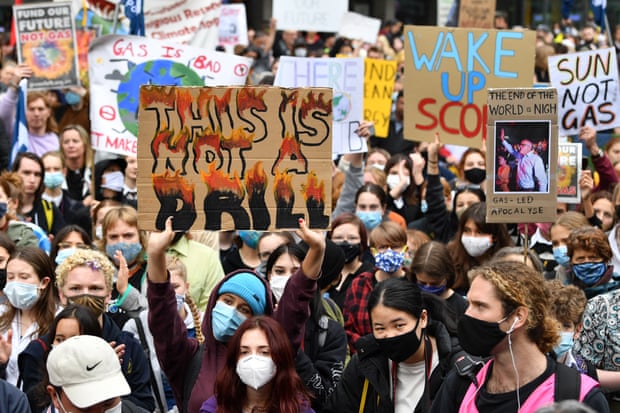 A letter to the editor by Trevor Scott published in the Bendigo Advertiser and the Midland Express.
A letter to the editor by Trevor Scott published in the Bendigo Advertiser and the Midland Express.‘Recently over 20,000 attended School Strike for Climate in Melbourne, indicating that Australians are not prepared to wait for government action on climate change. Also, the International Energy Agency, long time supporter of fossil fuels, has recently stated that to keep GHG emissions at safe levels, there must be no new coal mines or gasfields, or expansion of any existing ones. But Labor politicians, Joel Fitzgibbon and Meryl Swanson, whose seats are in the Hunter Valley, heart of the NSW coal country, believe that the rapid phasing out of coal will be politically disastrous for their Party. In a recent newspaper article about coal miners, it says “Labor cannot win the next election without an appeal to these workers”. Meanwhile the LNP government has found $90 – 100 billion to fund the Job Keeper and Job Seeker Schemes, and is about to commit $600 million of taxpayer funds to the “gas-led recovery”, but cannot find $10 billion to build the Star of the South, a fully viable, off-shore wind project that will generate 2.2 GW of renewable power and could be operating in 6-10 years. Right here is a great opportunity for Labor to go to the next election with a plan to transition from fossil fuel to renewable-generated electricity.
Naturally the workers in coal mines and coal-fired power stations are concerned for their jobs, but under the Just Transition Plan, no jobs would be lost and, most importantly, we would have a safe climate now and into the future.’
Trevor Scott (Castlemaine) Photo: The Guardian
24. An illustrated guide- how farms can reach z-net
A Hepburn Wind Community Energy initiative with a Brenna Quinlan illustration:

25. Loddon Mallee Climate Ready Plan 2021 – seeking feedback
Adapt Loddon Mallee is keen to hear feedback from the community on their recently drafted Climate Ready Plan, which aims to ensure the Loddon Mallee region is climate-ready, thriving and prosperous. The ADAPT Loddon Mallee network brings together people from all walks of life across the region to learn, share knowledge, and build networks to support communities in becoming climate-ready.
There is no doubt climate change is one of the greatest challenges ever faced by society, natural landscapes, and our native plants and animals. Despite the efforts of governments, community groups and individuals, it is certain we will experience a trend of warmer and drier conditions here in central Victoria, with erratic and unstable weather patterns. Adapting to these changes and providing resilient landscapes and communities is a vital step in being climate-ready.
Adapt Loddon Mallee is inviting feedback on their draft Climate Ready Plan for our region. Read on for details from Adapt Loddon Mallee about how to provide feedback on the draft plan.
Photo by Connecting Country
What is ADAPT Loddon Mallee?
Climate change impacts are already being felt in communities across the region. The pressure is being felt in sectors like local water, food production, and health and wellbeing. While it is important that we all take steps to reduce our emissions to mitigate against further future climate impacts, such as embracing renewable energy, we also need to reduce our current and future vulnerability by taking adaptation action. The ADAPT Loddon Mallee network brings together people from all walks of life across the region to learn, share knowledge, and build networks to support communities in becoming climate ready. Adapting to climate change involves taking practical actions to manage current impacts and future risks to build resilient communities and systems across the region. Successful adaptation is a shared responsibility. Individuals, communities, businesses and governments at all levels have a part to play. The challenge is too big to anyone to act alone – to ensure thriving communities in the future we need to work together.
ADAPT Loddon Mallee will focus on the following areas under three categories identified in the 2018 Regional Gap Analysis:
- People: Traditional Owners, youth, elderly, and volunteers.
- Places: Small townships, rural cities, places of natural and cultural significance.
- Sectors: Agriculture, biodiversity (flora and fauna), manufacturing, tourism, and health and human services.
Climate Ready Plan: ADAPT Loddon Mallee want to hear from you on what’s important in climate change adaptation in the Loddon Mallee region for the next five years.To read the draft plan and provide comments – click here
Posted by Connecting Country, 10 June, 2021 – https://connectingcountry.org.au/
26. Food for Thought
26.1 In a breaking world mending takes on more meaning
26.2 Covering Climate Now -website
From individual journalists and nonprofit newsrooms to national television networks and global wire services, our partners hail from more than 50 countries.
26.3 The Whanganui river gains personhood in NZ
Traditional owners watched closely when, in 2017, the Whanganui River in Aotearoa (New Zealand) was granted personhood by an act of parliament, the first river in the world to be recognised as an indivisible and living being. Poelina’s research takes that idea even further – extending the legal protections of the Fitzroy to recognise its authority as a living ancestral being.
26.4 An extended meditation on the sentience of the land
https://emergencemagazine.org/film/utuqaq/
As four researchers embark on an expedition to drill ice cores in the Arctic in subzero temperatures, the presence of these visitors is witnessed by Utuqaq—ice that lasts year after year. With a memory that extends millions of years into the past and a present form that shapeshifts in intricate patterns over the surface of the vast white landscape, this beautiful and vital Arctic ice is facing an increasingly uncertain future as the world warms.
Narrated through the Kalaallisut language of West Greenland—a melodic language that holds an understanding of spirits and presences that roam the land—Utuqaq observes the scientists drilling into the ice and asks, “What do they want?”
In this extended meditation on the sentience of the land, the film de-centers the human perspective and rests in the deep and boundless silence of the ice.
26.5 The Nightingale’s Song
Hearing musicians and birds in collaboration, it’s a sensation like no other and it’s quite a transformative experience. I’ve created this concert—but I think of it more as a ceremony for the birds that allows people to have an experience with nature that we don’t often have permission to have…it opens up all those boundaries. Every spring, Sam Lee—acclaimed folk singer, conservationist, and song collector—leads groups of people into the forest at nightfall to sing with the nightingales. In this concert-turned-ceremony, music flows between human and bird as they encounter each other through song.
In this interview, conversation, song, and the music of nightingales are woven together as Sam speaks with executive editor Emmanuel Vaughan-Lee about the transformative experience of collaborating with nightingales, the stories of ancestors passed through folk music, and the space for communion that is opened with silence. Sam’s recent book, The Nightingale: Notes on a Songbird, speaks to his decade of singing to and with this bird. As Britain’s population of nightingales continues to decline, Sam hopes that music might offer the bird a path back into cultural consciousness.

![[ Random Image ]](https://leanganook.org/images/image_15.jpeg)
